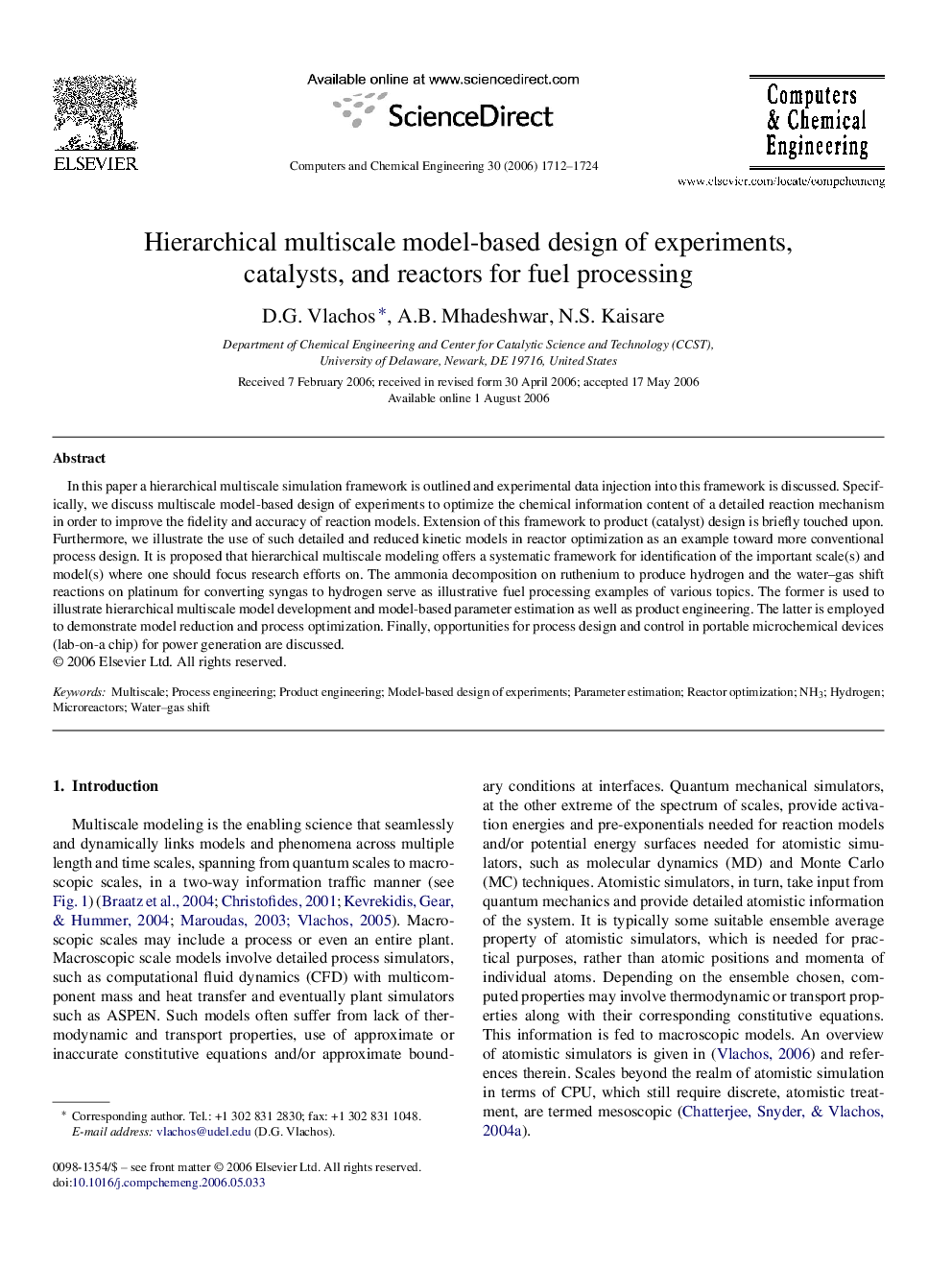| Article ID | Journal | Published Year | Pages | File Type |
|---|---|---|---|---|
| 174128 | Computers & Chemical Engineering | 2006 | 13 Pages |
In this paper a hierarchical multiscale simulation framework is outlined and experimental data injection into this framework is discussed. Specifically, we discuss multiscale model-based design of experiments to optimize the chemical information content of a detailed reaction mechanism in order to improve the fidelity and accuracy of reaction models. Extension of this framework to product (catalyst) design is briefly touched upon. Furthermore, we illustrate the use of such detailed and reduced kinetic models in reactor optimization as an example toward more conventional process design. It is proposed that hierarchical multiscale modeling offers a systematic framework for identification of the important scale(s) and model(s) where one should focus research efforts on. The ammonia decomposition on ruthenium to produce hydrogen and the water–gas shift reactions on platinum for converting syngas to hydrogen serve as illustrative fuel processing examples of various topics. The former is used to illustrate hierarchical multiscale model development and model-based parameter estimation as well as product engineering. The latter is employed to demonstrate model reduction and process optimization. Finally, opportunities for process design and control in portable microchemical devices (lab-on-a chip) for power generation are discussed.
